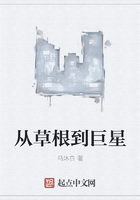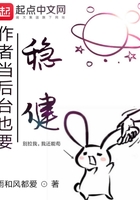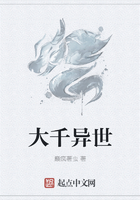In this state of agitation I had to make such violent efforts to appear calm that I scarcely noticed what was happening around me. Irecovered sufficient presence of mind when my fresh examination took place to answer in the same terms as at the first trial. Then a black veil seemed to fall over my head, an iron ring gripped my brow; the sockets of my eyes went icily cold; I could see nothing but myself, hear nothing but vague, unintelligible sounds. I do not know what actually took place; I do not know if any one announced the apparition which suddenly appeared before me. I only remember that a door opened behind the judges, and that Arthur came forward leading a veiled woman, that he took off her veil after ****** her sit down in a big arm-chair which the ushers eagerly wheeled toward her, and that a cry of admiration rang through the hall when Edmee's pale, sublime beauty was revealed.
At this moment I forgot the crowd, and the judges, and my cause, and the whole universe. I believe that no human power could have withstood my wild rush. I dashed like a thunderbolt into the middle of the inclosure and, falling at Edmee's feet, I showered kisses on her knees. I have been told that this act won over the public, and that nearly all the ladies burst into tears. The young dandies did not venture to laugh; the judges were affected; and for a moment truth was completely triumphant.
Edmee looked at me for some time. Her face was as expressionless as the face of death. It did not seem as if she could ever recognise me.
The spectators were waiting in profound silence for her to show some sign of hatred or affection for me. All at once she burst into tears, threw her arms around my neck, and then lost consciousness. Arthur had her carried out immediately; he had some trouble in ****** me return to my place. I could not remember where I was or the issues that were at stake; I clung to Edmee's dress, and only wanted to follow her.
Arthur addressed the court and requested that the doctors who had examined Edmee in the morning might again pronounce upon the state of her health. He likewise demanded that she should be recalled to give evidence, and to be confronted with me as soon as she recovered from the attack.
"This attack is not serious," he said. "Mademoiselle de Mauprat has had several of the same kind during the last few days and on her way here. After each her mental faculties have taken a more and more favourable turn.""Go and attend to the invalid," said the president. "She shall be recalled in two hours, if you think she will have recovered from her swoon by then. Meanwhile the court will hear the witness on whose demand the first sentence was not carried out."Arthur withdrew and Patience was introduced. He was dressed quite neatly; but, after saying a few words, he declared that it would be impossible to continue unless they allowed him to take off his coat.
This borrowed finery so embarrassed him and seemed so heavy that he was perspiring profusely. No sooner did the president make a sign of consent, accompanied by a smile of scorn, than he threw to the ground this badge of civilization. Then, after carefully pulling down his shirt-sleeves over his sinewy arms, he spoke almost as follows:
"I will speak the truth, the whole truth. I take the oath for the second time; for I have to speak of things that seem contradictory, things that I cannot explain to myself. I swear before God and man that I will say what I know, and as I know it, without being influenced for or against any one."He lifted his big hand and turned round towards the people with a ****** confidence, as if to say, "You can all see that I am taking an oath, and you know that I am to be trusted." This confidence of his was not ill-founded. Since the incident in the first trial the public mind had been much occupied about this extraordinary man, who had spoken before the court with so much daring, and harangued the people in presence of the judges. His conduct had filled all the democrats and /Philadelphians/ with great curiosity and sympathy. The works of Beaumarchais were very fashionable among the upper classes, and this will explain how it was that Patience, though opposed to all the authorities in the province, yet found himself supported and applauded by every man who prided himself on his intelligence. They all thought they saw in him Figaro under a new form. The fame of his private virtues had spread; for you remember that during my stay in America, Patience had made himself known among the people of Varenne and had exchanged his sorcerer's reputation for that of a public benefactor.
They had given him the title of the /great judge/, because he was always ready to intervene in disputes, and would always settle to the satisfaction of both sides with admirable good-nature and tact.
This time he spoke in a high, penetrating voice. It was a rich voice of wide compass. His gestures were quiet or animated, according to the circumstances, but always dignified and impressive; the expression on his short, Socratic face was never anything but fine. He had all the qualities of an orator; but there was no vanity in his display of them. He spoke in the plain, concise style that he had been obliged to acquire in his recent intercourse with men, in discussions about their practical interests.














